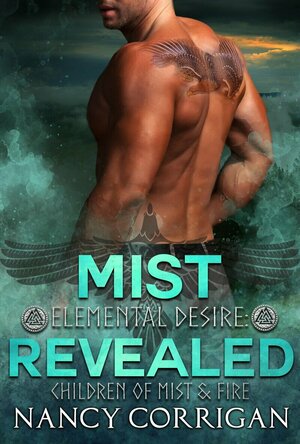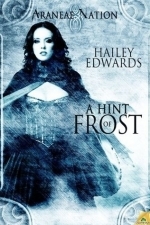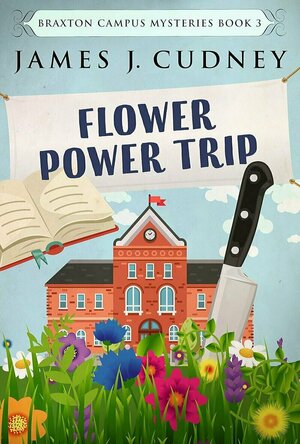Search
Search results
Merissa (13780 KP) rated Mist Revealed (Elemental Desire #1) in Books
Jun 6, 2023
A virus like no other is spreading around parts of Greenland. Cat has researched this, and it has become personal as her sister has also died from it. She goes to Greenland without authority, to try and find out more data to back her research. She literally bumps into Rune and sparks fly. Her life will change from that moment in ways she had never, and could never, have imagined. Rune is instantly drawn to Cat, in a way he never has been previously. He knows that he wants to 'mate' her, he knows that he will not be sharing her, even though this was a common occurrence amongst his brothers.
With a fast-paced storyline, you are drawn into the world of Mist and Smoke, with Norse Gods, Fire Demons and Wardens. With a cast of fantastic characters, both good and bad, this story will sweep you away and leave you wanting more. As this is the first story, you do get the history part of the story too, which you need, but it is done in such a way that you don't mind and, in fact, want to know more.
A brilliant start to the series, and I can't wait to read more. Highly recommended.
* A copy of this book was provided to me with no requirements for a review. I voluntarily read this book, and the comments here are my honest opinion. *
Merissa
Archaeolibrarian - I Dig Good Books!
Apr 17, 2016
With a fast-paced storyline, you are drawn into the world of Mist and Smoke, with Norse Gods, Fire Demons and Wardens. With a cast of fantastic characters, both good and bad, this story will sweep you away and leave you wanting more. As this is the first story, you do get the history part of the story too, which you need, but it is done in such a way that you don't mind and, in fact, want to know more.
A brilliant start to the series, and I can't wait to read more. Highly recommended.
* A copy of this book was provided to me with no requirements for a review. I voluntarily read this book, and the comments here are my honest opinion. *
Merissa
Archaeolibrarian - I Dig Good Books!
Apr 17, 2016
Merissa (13780 KP) rated The Handoff (Big Play, #3) in Books
Jan 17, 2019 (Updated Jun 8, 2023)
The Handoff (Big Play #3) by Jordan Ford
In the third instalment of the Big Play series, we meet Finn in more detail. He is the cool, collected, one that has been there for Colt and Mack throughout. When Mack goes to New Zealand, he asks Finn to keep an eye on his sister as he feels that she is not quite herself. Finn wants to say no but doesn't. Instead, he ends up helping Layla in more ways than he could ever have imagined, and as a result, sees her as a completely different person. Due to Finn's support, Layla changes herself and finds courage when she thought she had none.
With hints being given with the overall story arc, as well as snippets pertaining to Layla directly, this is a wonderful addition. Well written, full of emotion and gripping situations and characters, this is guaranteed to draw you into their story. You will be with Layla and Finn every step of the way, encouraging them to carry on when it seems too hard.
This is one of those series that I absolutely can't wait for the next book, but that is also bittersweet as I know it's the last one. Highly recommended.
* A copy of this book was provided to me with no requirements for a review. I voluntarily read this book, and the comments here are my honest opinion. *
Merissa
Archaeolibrarian - I Dig Good Books!
Jun 9, 2016
With hints being given with the overall story arc, as well as snippets pertaining to Layla directly, this is a wonderful addition. Well written, full of emotion and gripping situations and characters, this is guaranteed to draw you into their story. You will be with Layla and Finn every step of the way, encouraging them to carry on when it seems too hard.
This is one of those series that I absolutely can't wait for the next book, but that is also bittersweet as I know it's the last one. Highly recommended.
* A copy of this book was provided to me with no requirements for a review. I voluntarily read this book, and the comments here are my honest opinion. *
Merissa
Archaeolibrarian - I Dig Good Books!
Jun 9, 2016
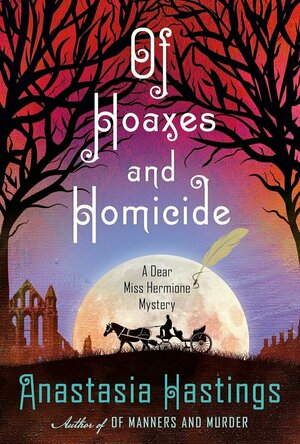
Of Hoaxes and Homicide
Book
The second in the delightful Dear Miss Hermione mystery series from Anastasia Hastings—when you...
Merissa (13780 KP) rated Bella's Countryside Christmas in Books
Oct 4, 2024
BELLA'S COUNTRYSIDE CHRISTMAS is set in Haileybrook. To escape a boring conference, she fakes illness and goes to the church where she should have been married, if she hadn't called it off. While there, she saves a nativity scene from guaranteed disaster, as well as helping a cute man by pretending to be his date. After a better-than-expected day/evening and a moment of connection complete with a kiss, she disappears to help her younger sister, leaving Jack all alone. Fast forward a year (give or take) and Bella is returning to Haileybrook, this time to live and work.
This was such a great story! It is gentle, with no unnecessary angst or drama, with a healthy dose of mystery. Character-led with cameos from characters out of other books, this was a story I didn't want to end. The people here were funny and likeable, especially the ones from the home!
The flow of the story was smooth and left me wanting to continue reading, even when I got to the chapter breaks. It has Christmassy vibes but doesn't rule the whole story. A fantastic read and definitely recommended by me.
** same worded review will appear elsewhere **
* A copy of this book was provided to me with no requirements for a review. I voluntarily read this book; the comments here are my honest opinion. *
Merissa
Archaeolibrarian - I Dig Good Books!
Sep 25, 2024
This was such a great story! It is gentle, with no unnecessary angst or drama, with a healthy dose of mystery. Character-led with cameos from characters out of other books, this was a story I didn't want to end. The people here were funny and likeable, especially the ones from the home!
The flow of the story was smooth and left me wanting to continue reading, even when I got to the chapter breaks. It has Christmassy vibes but doesn't rule the whole story. A fantastic read and definitely recommended by me.
** same worded review will appear elsewhere **
* A copy of this book was provided to me with no requirements for a review. I voluntarily read this book; the comments here are my honest opinion. *
Merissa
Archaeolibrarian - I Dig Good Books!
Sep 25, 2024
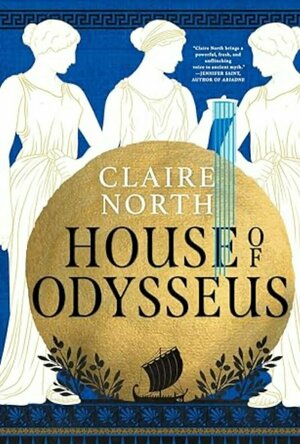
The House of Odysseus
Book
From the author of the critically acclaimed Ithaca - A Sunday Times Historical Fiction Book of the...
Historical fiction Greek mythology
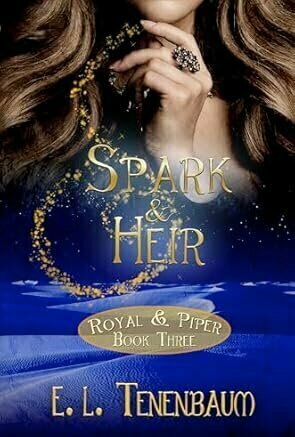
Spark & Heir (Royal & Piper #3)
Book
Over a year after his disappearance, the Piper of HameLonn has returned. As winter delays...
Young Adult Fantasy Romance
Lyndsey Gollogly (2893 KP) rated A Hint of Frost (Araneae Nation #1) in Books
Jan 6, 2024
4 of 220
Kindle
A Hint of Frost ( Araneae Nation 1)
By Hailey Edwards
⭐️⭐️⭐️⭐️
When the head of the Araneidae clan is found poisoned in her nest, her eldest daughter, Lourdes, becomes their clan’s new maven. If her clan is to survive, she has but one choice: she must marry before her nest is seized. All she needs is a warrior fierce enough to protect her city and safeguard her clansmen. Such a male is Rhys the Cold.
Born the youngest son of an impoverished maven, the only things Rhys has to his name are his sword and his mercenary reputation. His clan is starving, but their fondness for the flesh of fellow Araneaeans makes them unwelcome dinner guests. Torn between loyalty to his clan and fascination with his future bride, Rhys’s first taste of Lourdes threatens to melt the cold encasing his heart.
Amid the chaos of battle, Lourdes’s sister disappears and is feared captured. Lourdes and Rhys pursue their enemies into the southlands, where they discover an odd plague ravaging southern clans as it travels north, to Erania. Determined to survive, Lourdes will discover whether she’s worth her silk or if she’s spun the thread by which her clan will hang.
I really love this story and I like the idea of this species that give spider spinning vibes. It’s an easy read and an easy story to follow a really pleasant read. Also Rhys yes please.
Kindle
A Hint of Frost ( Araneae Nation 1)
By Hailey Edwards
⭐️⭐️⭐️⭐️
When the head of the Araneidae clan is found poisoned in her nest, her eldest daughter, Lourdes, becomes their clan’s new maven. If her clan is to survive, she has but one choice: she must marry before her nest is seized. All she needs is a warrior fierce enough to protect her city and safeguard her clansmen. Such a male is Rhys the Cold.
Born the youngest son of an impoverished maven, the only things Rhys has to his name are his sword and his mercenary reputation. His clan is starving, but their fondness for the flesh of fellow Araneaeans makes them unwelcome dinner guests. Torn between loyalty to his clan and fascination with his future bride, Rhys’s first taste of Lourdes threatens to melt the cold encasing his heart.
Amid the chaos of battle, Lourdes’s sister disappears and is feared captured. Lourdes and Rhys pursue their enemies into the southlands, where they discover an odd plague ravaging southern clans as it travels north, to Erania. Determined to survive, Lourdes will discover whether she’s worth her silk or if she’s spun the thread by which her clan will hang.
I really love this story and I like the idea of this species that give spider spinning vibes. It’s an easy read and an easy story to follow a really pleasant read. Also Rhys yes please.
Mark @ Carstairs Considers (2484 KP) rated Flower Power Trip in Books
Dec 4, 2024
Murder at the Masquerade Ball
It’s the start of summer at Braxton, but Kellan Ayrwick is finding the campus is anything but calm. Not only is he personally teaching a course over the summer, but the Mendel Flower Show has decided to use the campus for their presentation this year. The season is kicking off with a masquerade ball to raise money for a needed library renovation. However, the night ends in tragedy when Kellan finds a dead body in a staff only section of the library. With a friend’s sister the prime suspect, can Kellan figure out what is going on?
Those who are familiar with the series will know that there is a lot going on in these books, and this one is no exception. Yes, we do get some updates to the ongoing soap operaish storylines, including another cliffhanger. The focus is on the new mystery here, however, and it does a good job of keeping us guessing with plenty of twists and red herrings. The ultimate solution was satisfying. My biggest gripe is that Kellan seems to have some contentious relationships with the other series regulars. I hope we are growing beyond some of those issues soon because I read cozies for the groups of characters I want to revisit. Still, I enjoyed this book overall. I definitely recommend you read these books in order because of the ongoing saga. I’m hoping I can make it to the next one soon.
Those who are familiar with the series will know that there is a lot going on in these books, and this one is no exception. Yes, we do get some updates to the ongoing soap operaish storylines, including another cliffhanger. The focus is on the new mystery here, however, and it does a good job of keeping us guessing with plenty of twists and red herrings. The ultimate solution was satisfying. My biggest gripe is that Kellan seems to have some contentious relationships with the other series regulars. I hope we are growing beyond some of those issues soon because I read cozies for the groups of characters I want to revisit. Still, I enjoyed this book overall. I definitely recommend you read these books in order because of the ongoing saga. I’m hoping I can make it to the next one soon.
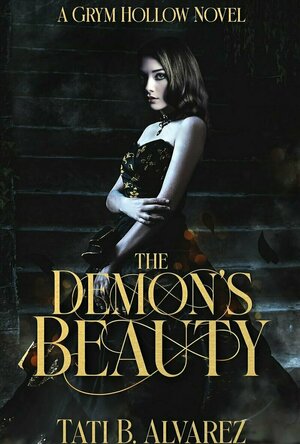
The Demon's Beauty (Grym Hollow #4)
Book
Isabelle would do anything for her sister—and she proved it. She will never regret seeking...
Fantasy Romance
Lyndsey Gollogly (2893 KP) rated Recluse in Books
May 11, 2024
92 of 220
Book sirens arc
Recluse
By Gabriel Zavala
⭐️⭐️⭐️⭐️
HE'S WEAVING HIS WEB OF MURDER.
Lukas Retter is a recluse in the correctional city of East Haddam, Connecticut, washing cars and dreaming about taking back control of his life. He has been ever since The Safety First Act redefined criminal justice in America.
Meanwhile, the children of criminals are placed in psychiatric hospitals to be evaluated.
But when Lukas murders Rebecca Waylow, his girlfriend, he leaves her dismembered and strung-up on a web of bloody ropes and wires. And she won't be the last.
As Lukas recalls his sinister past and becomes the new nightmare of his correctional city, he transforms into the serial killer he was destined to become. He'll do whatever it takes to feel control, even if it means stringing a few people up in the process.
This was pretty brutal from start to finish. Not one of these characters have any redeeming qualities. This main character was taken from his home at a young age, accused of killing his father even though he watched his sister do it to then be put into a violent situation by the government.
It’s a tough read but actually really well written especially from such a young author who definitely has a long promising career ahead of him.
I received an advance review copy for free, and I am leaving this review voluntarily.
Book sirens arc
Recluse
By Gabriel Zavala
⭐️⭐️⭐️⭐️
HE'S WEAVING HIS WEB OF MURDER.
Lukas Retter is a recluse in the correctional city of East Haddam, Connecticut, washing cars and dreaming about taking back control of his life. He has been ever since The Safety First Act redefined criminal justice in America.
Meanwhile, the children of criminals are placed in psychiatric hospitals to be evaluated.
But when Lukas murders Rebecca Waylow, his girlfriend, he leaves her dismembered and strung-up on a web of bloody ropes and wires. And she won't be the last.
As Lukas recalls his sinister past and becomes the new nightmare of his correctional city, he transforms into the serial killer he was destined to become. He'll do whatever it takes to feel control, even if it means stringing a few people up in the process.
This was pretty brutal from start to finish. Not one of these characters have any redeeming qualities. This main character was taken from his home at a young age, accused of killing his father even though he watched his sister do it to then be put into a violent situation by the government.
It’s a tough read but actually really well written especially from such a young author who definitely has a long promising career ahead of him.
I received an advance review copy for free, and I am leaving this review voluntarily.
